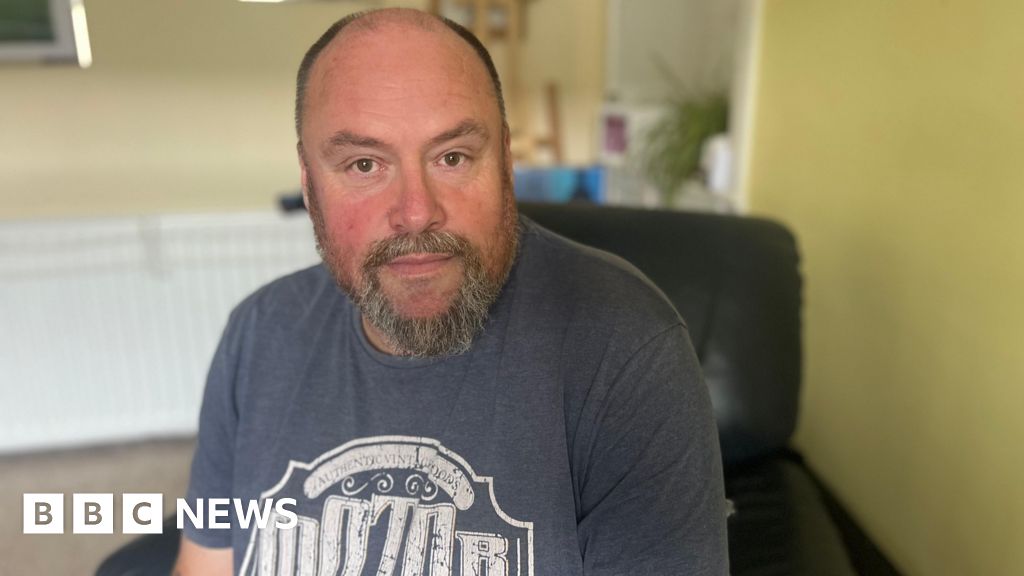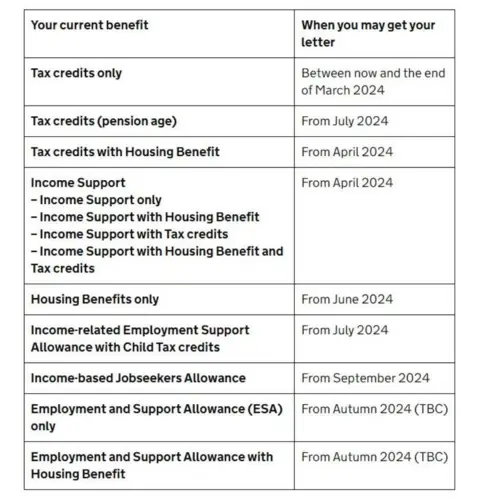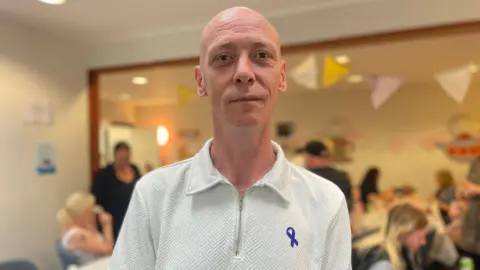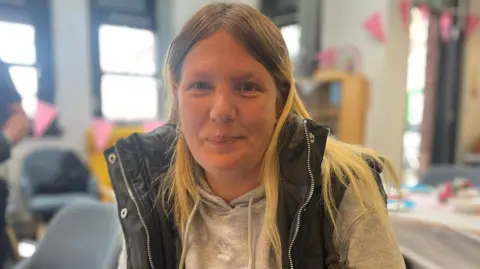Football
Calls to scrap ‘five-week-wait’ for Universal Credit

 BBC
BBCBrian Closs is a full-time carer for his two autistic teenagers and has been receiving income support with child benefit, carers allowance and child tax credits.
But these benefits are being phased out by the Department of Work and Pensions (DWP) as part of a “managed migration” to universal credit payments.
Money is already tight for Brian, 55, but in order to receive his new benefit he has to claim and then wait more than a month for his new payment.
The controversial “five-week wait” means he will fall further into debt unless he asks for an advance from DWP, which he will have to pay back reducing his benefits for a year.

Brian is one of 1.8 million people across the UK – 9% of those in Scotland – who are being asked to apply for universal credit in the latest stage of the migration process, which started in 2022.
The father-of-three said it had been a “very stressful” time, with his debts mounting since he started his claim.
He added: “I now have an extra almost £800 of debt that I didn’t have prior to hitting enter to start my claim.
“I don’t understand the need to push everybody across.”
Brian won’t find out the exact amount he will receive through universal credit until a few days before his first payment.
“There’s always that worry that something is missed and you don’t get what you’re supposed to be getting,” he said.
Citizens’ Advice Scotland is now calling for the wait for universal credit to be scrapped.
It warns that repaying money from advance loans is leaving people in “very real hardship”.

Policy officer Erica Young said: “We would like to see the complete abolition of the five-week wait.
“We don’t think it reflects real life and it’s a completely new feature of the benefit system.
“Not in the history of it has there ever been anything like this. All other benefits have been paid weekly or fortnightly.”
Ms Young said advanced loan repayments were usually spread over a 12-month period, which reduce the amount of benefit people receive for a whole year.
“Given the level of universal credit, which is already not adequate to meet people’s very basic needs, the situation can be quite dramatic for people trying to work their way around that budget,” she said.
“But most people don’t have a choice but to take an advanced loan.
“The other alternative route that we could go down to resolve this problem would be to convert the five-week wait loan into a grant so that people don’t have to pay that back.”
‘Bills have to be paid’
Brian said he managed to save a little bit of money each week to help with the gap in payments.
“I don’t understand how they expect people to get through,” he added.
“At the end of the day, all your bills have still got to be paid.”
Brian benefited from a discretionary payment from North Lanarkshire Council to cover his rent, which he will have to repay.
The former welfare rights adviser wants politicians to have “a little more compassion”.
“There is that perception of people on benefits that it’s a life choice,” he said.
“I can assure you it’s not a life choice particularly in mine and lots of other carers’ situations.
“It’s your children or work and, sorry, but family always comes first.”
 DWP
DWPIt is estimated that about 20% of those who were due to move to Universal Credit from tax credits chose not to make the move.
“Quite often that’s because of the amount of management involved in maintaining a Universal Credit claim,” Ms Young said.
The Citizens’ Advice policy officer said people have to attend the job centre every couple of weeks and look out for messages their online account on a daily basis.
People claiming universal credit and working fewer than 18 hours a week could also now be expected to look for more work, after a change to the system earlier this year.
The DWP said the rule change meant 180,000 people across the UK would have to earn more or risk losing some of their benefits.

Terry McTernan, a local activist in Paisley’s Ferguslie Park area, helps run a community market in the Tannahill Centre.
It offers low-income families reduced price food essentials.
Terry said he has had to subsidise many community members as they wait for their first universal credit payment.
“We’ve grown to expect that the welfare system is not fit for purpose,” he said.
“This is not something that’s happened only last week, it’s been a long-standing issue.
“Universal credit almost from the first kick of the ball wasn’t fit for purpose.
“This idea that everyone that’s in receipt of universal credit is some sort of lazy, work shy shirker is just for the birds.
“It doesn’t correlate with my lived experience at all.”

Sarahjane Cassidy, who lives in Johnstone with her partner and two sons, attends the Tannahill Centre for support and received her migration notice two weeks ago.
“I did know we were going to change but I wasn’t too sure when it was going to come through because everybody else I know got it months before,” she said.
“It was quite a surprise when I got it, but there was not much information on the letters except telling you to contact universal credit.
“Having two younger kids, you’re like ‘what am I supposed to do for the five weeks?’
“Then obviously with the monthly payments it is a struggle as well as I’m used to weekly.
“It is quite worrying because what you’re supposed to do without any money for five weeks, it’s obviously going to be a real struggle.”
A DWP spokesperson said: “Vulnerable people in need of urgent financial support can apply for an advance of their entitlement when moving over to universal credit.
“We are committed to reviewing universal credit so it tackles poverty and makes work pay.”
The spokesperson added a range of support is available for those asked to move to universal credit, including a dedicated helpline, guidance on gov.uk, gov.scot and independent support through ‘Help to Claim’ delivered by Citizens Advice.











